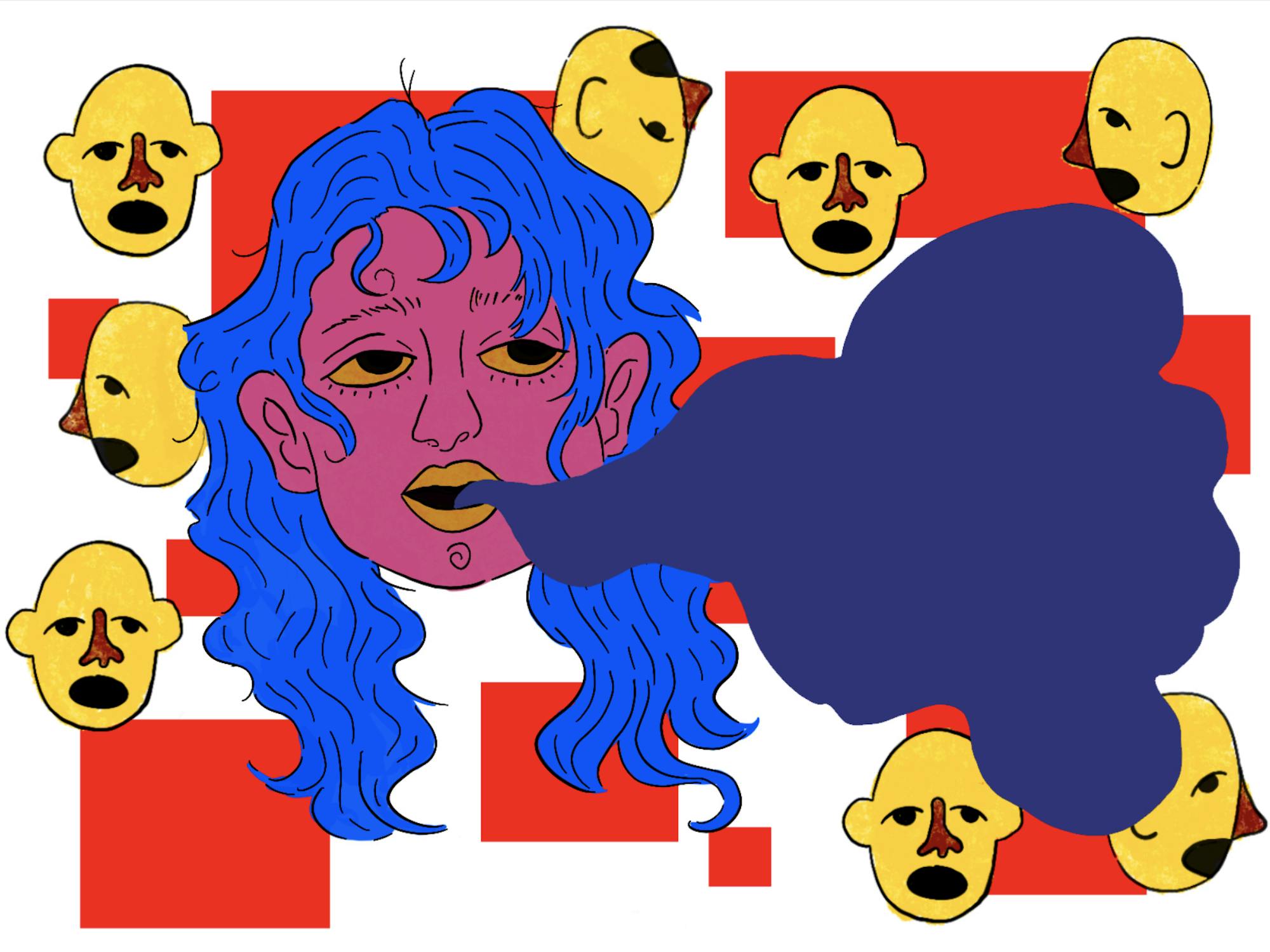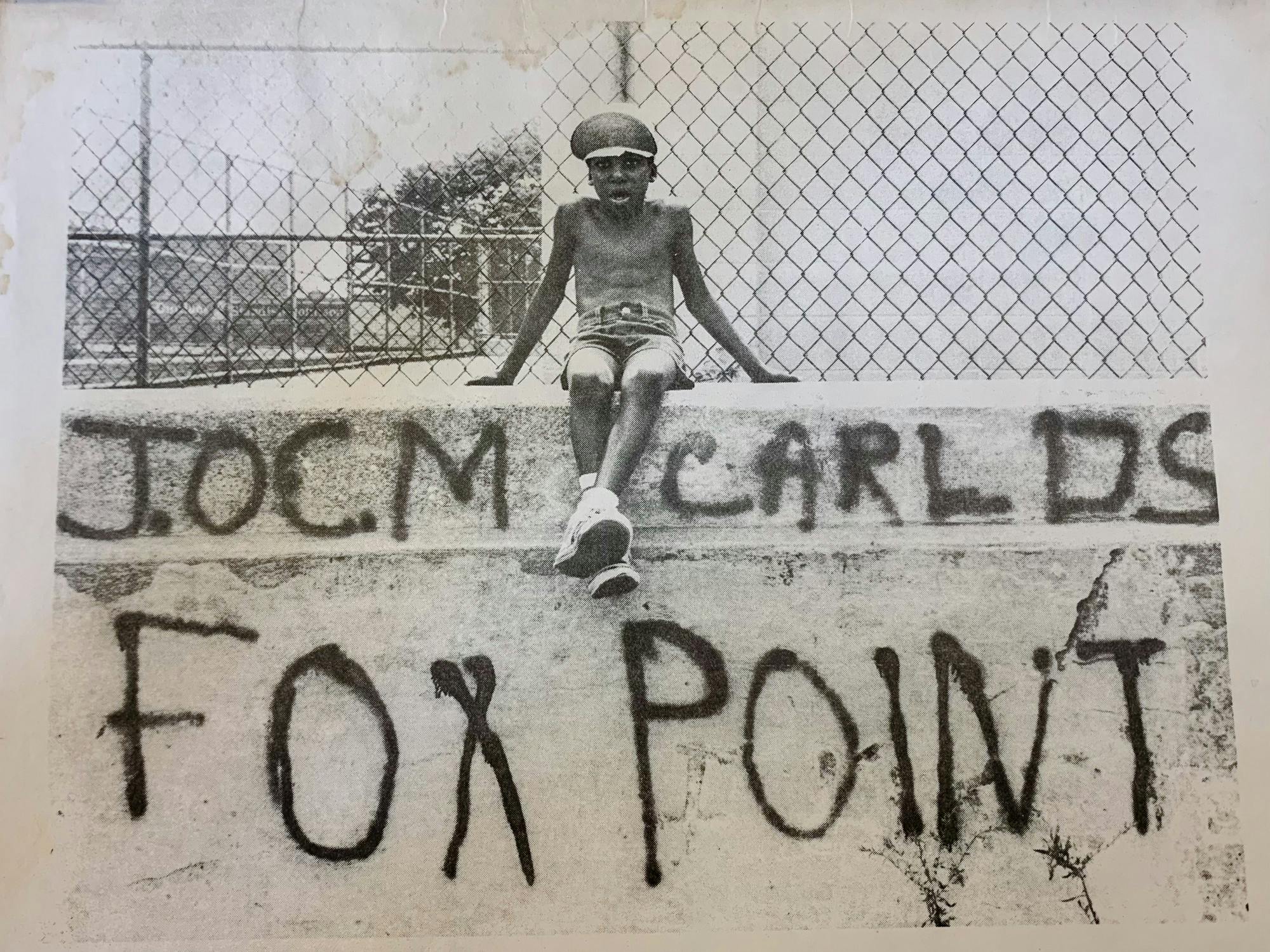“If you run away,” said his mother, “I will run after you. For you are my little bunny.”
The Runaway Bunny by Margaret Wise Brown
For a long time, I didn’t realize this story was also a love story. It goes like this:
My parents grow up in the 1980s in neighboring towns along the southeastern coast of China. My dad sits behind my mom in math class and studies the curve of her head. He chases after her all through their time in school.
My dad scribbles a poem in my mother’s yearbook at the end of high school. He sends her love letters throughout college, sleeps cold and happy after stealthily giving her his blankets on a midwinter overnight ferry.
I flip to a picture of my mother in her twenties. She is young and pretty. My dad poses next to her, squatting down on a rock and flashing double peace signs.
I flip the page and we’re by the edge of a lake on a day out. My dad skips stones with one hand while baby me in a dress swats at a butterfly as my mother holds me. She laughs at someone behind the camera.
Like any self-respecting queer ABC (American-born Chinese), I watched Everything Everywhere All at Once in theaters when it came out. It’s a dazzling sci-fi epic in the multiverse about a middle-aged Chinese-American woman, Evelyn (Michelle Yeoh), struggling to keep her laundromat open while her marriage to her husband, Waymond (Ke Huy Quan), falls apart. Her emotionally distant father (James Hong) is visiting and she is still grappling to accept that her daughter, Joy (Stephanie Hsu), is gay.
Evelyn is filled with regret because of the unfulfilling life she has led since following Waymond to the United States, while Waymond longs for Evelyn to exit the callous solipsism of her own remorse to notice him for just a few moments and remember the love they used to have for one another.
My father jokes whenever my mother is angry. It’s pathological; I think he’s physically incapable of silence. He is soft-spoken, gentle, and unhurried—everything about Ke Huy Quan’s on-screen performance brings to mind images of my own father so visceral I have to double-check to make sure he’s not here. He built the world as I knew it, steadily and without complaint.
Early days blur into nights; my dad rocks me to sleep, singing a song about airplanes in the rain. I feel safe in those first years sitting in the back of his car even during heavy storms. I play the lullaby on the piano sometimes now, trying to figure it out by ear. I can’t remember fully how it goes.
I flip to another page: the year is new and it’s cold and we can’t go home. My dad is gone. (Will return in a few days, apologetic.) My mom takes me and my little sister, then nine and four, by the hand and we wander around a Target for hours pretending that we’re looking for something.
I grow away. They do too. We take years from each other. My mother blames my failings on my father more and more. Maybe that’s where I first started to learn manhood from. She wishes I were more like her. I secretly think I am and that’s why we’re stuck pushing against one another in perpetuity. I’m stubborn. I lash out too easily and act too impulsively. I don’t know when to stop pushing. My mother and I fill any room we’re in together.
Evelyn is unable to bring herself to introduce Joy’s girlfriend to her father; she settles for introducing her as a good friend. She tries to apologize to Joy afterward and convey her love for her daughter, but what ends up coming out is, “You have to try to eat healthier. You are getting fat.” My friend and I giggle through the entire scene. Because it’s such a cliché and isn’t it such an unfair caricature of Chinese mothers that Evelyn isn’t capable of speaking emotionally to her daughter without commenting on her weight?
I admitted aloud that I was trans for the first time to a friend and couldn’t get through it without breaking down because of the guilt. When I tried suicide, my parents’ suggestion was a Christian counselor affiliated with our church who would fix me. My mother lets me know she thinks my haircut is ugly and too short, my clothes aren’t anything like my sister’s (younger and already more agreeable), and that I should eat less because I’m putting on weight. She and my aunt text me pictures regularly of when I was in sixth grade and had long hair, look how pretty you are in this one.
“For some reason when I’m with you it just hurts the both of us,” Joy finally tells Evelyn, exhausted.
She tells me a dream she had of how she imagined I would be when she was pregnant with me. A little girl in a dress (with pockets!) sitting on the steps leading into our home, eating graham crackers out of her pockets and waiting for her mom to come home. It’s silly, isn’t it? Oh, I don’t know. I don’t tell her about the dream I have where I wake up in her body, look in the mirror, and see my own face growing in.
My mother knows the ins and outs of how to take me apart. It’s not a particularly original skill. My mother’s father wanted a son but had two daughters. He asks us to call him 爷爷 (paternal grandfather) to pretend he didn’t fail.
Evelyn’s father disowns her and pushes her out of their home when she decides to follow Waymond to America, “If you abandon this family for that silly boy, we will abandon you.” I watch and wonder how we let go of each other so easily.
I always considered myself lucky to have parents that made an effort to read to me. The first book we read together is God’s Wisdom for Little Girls. The illustrations are beautiful; the poems make my head heavy and warm. I love the rhythm of the words and beg my mom to read me more, but really, it’s our time together that I’m putting off parting with.
My dad stands at the side of the sanctuary passing out programs for Sunday service. I fetch bottled water for the pastor and station myself beside my dad, mimicking his stance with all my six years of height. I wish more than anything to be an usher too. At home, I try on his ties and Sunday suit; they’re ridiculously large.
December now. My trans friend visits me and meets my dad briefly. You can barely even tell, my dad wonders out loud before he’s even fully out the door. I hate him for it. I hate myself for hating him but more so for letting my friend face his scrutiny. Maybe I’m learning. I return home after school to all my athletic shorts thrown out because my mother was sick of them. I hide my things better. I sneak out to homecoming in a suit, change in the parking lot of an Uncle Julio’s afterward and reflect on how silly the whole thing is, go home. Everything is normal.
It gets better. Any good love story has to. Evelyn learns that her family has chosen her in every universe. She may not have succeeded in the ways she had hoped, but she has a husband who loves her and a daughter who longs for connection. She breaks the cycle of intergenerational hurt by introducing Joy’s girlfriend to her own father and telling him she no longer needs his approval. She’s proud enough of herself.
Even now, when I look at Ke Huy Quan as Waymond, I still can’t help but see my father. I’m learning that this can coexist with everything else. He was the first to call me. I’m trying. Your mom needs more time.
I fall in love with a girl. We hold hands during a bad movie and lean into one another. We run our bikes down wide roads. I hurtle after her bright back. Light rain beats back the late-summer dust that gathers in our throats and the night turns clear and sweet. I’m slowly learning to choose and be chosen in this lifetime; there is no other. I take my time walking back home, pausing at corner stores and apartment complexes I hadn’t realized had always been there. I started to believe this could also be a love story.
I am trying to be a decent son. I ask my mother to teach me how to cook and I methodically write down and take pictures of every recipe she guides me through. I don’t want to lose any of it. The kitchen grows dark. By the window, scraps of moon blur with our white reflections. At last, as the stars begin pricking out of the sky, the pork floss rolls are tucked away into the oven.
This is not that story. But I hope it ends satisfactorily. My family is one that is messy and full of contradictions, but it’s a comfort that so is everything else. In this world out of infinite others, maybe we still have time.
It’s raining and we huddle under one umbrella. I’m standing straighter and taller than her now. She rests her head tentatively on my shoulder. Somehow it makes sense.
Now—hundreds of miles apart from one another—she asks about my classes, doesn’t ask about the things we agree not to talk about. I am afraid you are doing a lot, have too much pressure. I tell her I’m doing well, she has nothing to worry about.
She texts me pictures of sunsets. This evening, beautiful.
Last night I dreamt I jumped into the lake and waited patiently for a denouement. Two splashes.





